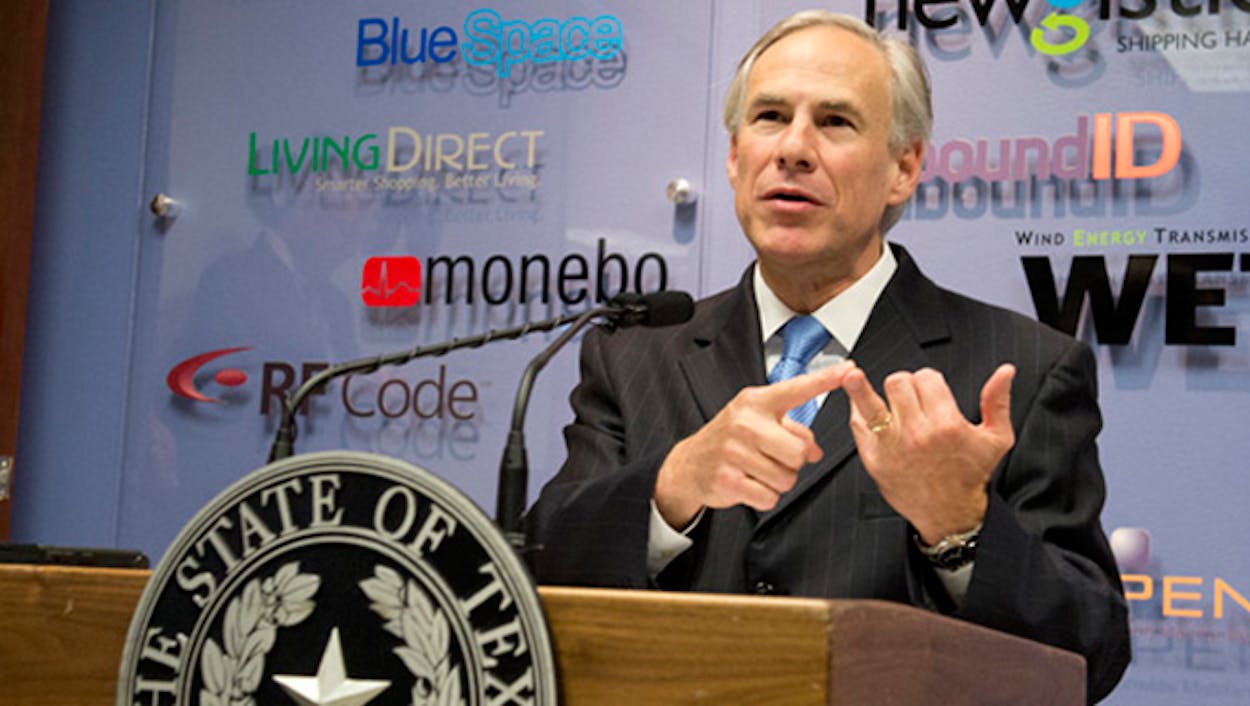Houston hosted an extremely successful Super Bowl two weeks ago, but the fuzzy feelings between the NFL and Texas didn’t last long. A week later, the NFL put Houston—and any other Texas city with ambitions to host future Super Bowls, NFL Drafts, Pro Bowls, or other league events—on notice that, should “bathroom bill” SB6 pass, it’s definitely going to take “inclusiveness” of the host cities of its events into consideration when it determines who gets what.
“The NFL embraces inclusiveness,” spokesman Brian McCarthy said in an email response to a Chronicle question about the bill. “We want all fans to feel welcomed at our events, and NFL policies prohibit discrimination based on age, gender, race, religion, sexual orientation, or any other improper standard.”
Passage of a measure the league considers “discriminatory or inconsistent with our values” has been the sort of thing that sports leagues have talked about in the past. This weekend, the NBA All Star Game is happening in New Orleans—and not Charlotte, North Carolina, where it was originally scheduled—because of North Carolina’s “bathroom bill.” And the NFL itself took similar action back in 1990, pulling the Super Bowl out of Phoenix amid Arizona’s refusal to recognize Martin Luther King Jr. Day as a holiday.
None of this is sitting well with Texas leaders. Governor Greg Abbott, who joined Glenn Beck on his radio show on Tuesday, declared that “the NFL is walking on thin ice right here” and told the league to “get the heck out of politics.” The next day, Dan Patrick echoed the sentiment, telling radio host Laura Ingraham that “they need to stick to their business” and asking if NFL commissioner Roger Goodell supports “boys and girls showering together in the tenth grade.”
“Walking on thin ice” is tough language from Abbott, but the metaphor is dicey. The NFL isn’t at risk of cracking through and finding itself in an untenable situation, simply because the NFL holds considerably more leverage than Texas does here. Texas leaders love it when big events happen in the state. If Tom Brady’s jersey gets stolen after a game, Dan Patrick sends the Texas Rangers to find it. But there are cities in 49 other states that would certainly love to host the Super Bowl, the NFL Draft, or the Pro Bowl, and they’ll all desperately vie to outbid each other for the right to do it. The NFL doesn’t really lose much if they host those events in California every time they might otherwise consider Texas.
Still, Abbott’s built much of his career on taking on powerful adversaries. He boasted in 2012 at the state GOP convention that, as attorney general, his job was simple: “I go the office. I sue the federal government. Then I go home.” That sort of rhetoric didn’t impede his quest for the governorship, but now the federal government is controlled by a president that Abbott proudly supports. So when you’re looking for the next big guy to stand up to, you could do worse than the nation’s most popular sports league.
NFL decision makers also benched Tom Brady last season. It ended with NFL handing the Super Bowl trophy to Brady. https://t.co/Qg06jT9RDp
— Greg Abbott (@GregAbbott_TX) February 11, 2017
Abbott’s tactics in this fight are curious. Noting that “NFL decision makers also benched Tom Brady last season” before he won the Super Bowl doesn’t exactly make the slam-dunk point that Abbott is looking for: the NFL didn’t “bench” Brady, they suspended him for cheating. (Whether that’s an accurate description of what happened has been argued ad nauseum in sports media, and turned talk radio hosts into people who talk about things like “ideal gas law.”) That he went on to win the Super Bowl doesn’t reflect poor decision-making on the part of the NFL so much as it reflects that, sometimes, people who’ve been suspended for cheating can also win football games.
On Thursday, Abbott went on Fox’s America’s Newsroom to insist that “if the NFL tries to come down on the state of Texas, I might just pass a bill here in the state of Texas mandating that all NFL players have to stand and put the hand on the heart when the National Anthem is played.”
A lot of this is probably bluster on both sides of the fight. At the very least, it’d be downright wild for Abbott to pursue the law he proposed on Fox on Thursday. And the NFL didn’t take a stand against Houston when the city repealed its equal rights ordinance in 2015, despite the fact that it knew it had the Super Bowl coming to the city fourteen months later.
But pulling a Super Bowl out of a city with scarcely more than a year to go would be difficult. Super Bowls are awarded years in advance—we already know that the 2021 Super Bowl will be played in Los Angeles—and there was already a fair bit of investment sunk into Houston at the time of HERO’s repeal. It’s a much easier matter to look at the list of competing bids to host the 2022 event, or any of the years that follow, and quickly strike off the name of any city in a state whose governor has signed a “bathroom bill” or similar law.
We’ll see what all of this means in the months (and, potentially, years) to come. It’s hard to say how this impacts SB6’s potential for becoming law, but right now, Greg Abbott would like you to know that he doesn’t care what the NFL thinks.








